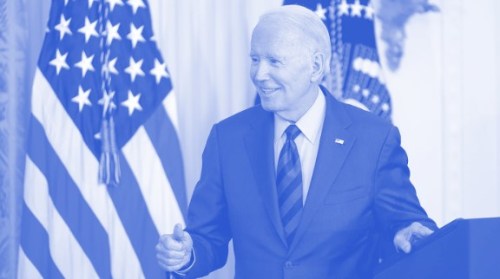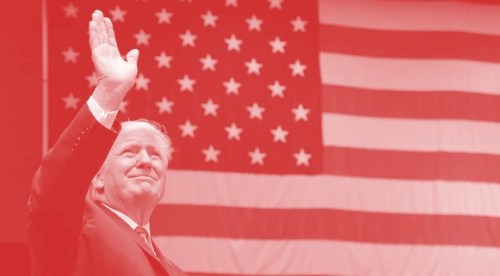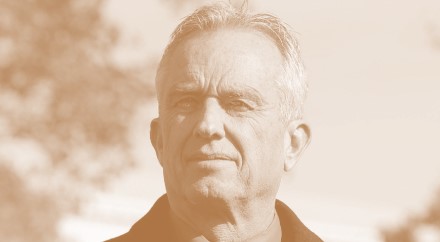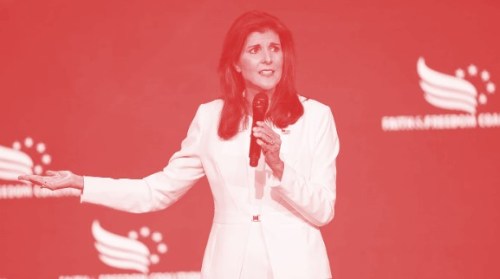Biden and Trump deal knockout to debate commission
President Biden and former President Trump dealt a major blow to the Commission on Presidential Debates (CPD) on Wednesday, calling into question the usefulness of the organization moving forward.
Biden’s campaign informed the commission it would work directly with news organizations to arrange two debates this summer with Trump, who quickly accepted his rival’s proposal.
The development raised the possibility that the commission, which has handled presidential debates each cycle dating back to 1988, may fade into irrelevance after 2024.
“I think it may be the last gasp of the CPD,” said Doug Brinkley, a presidential historian and professor at Rice University. “This is supposed to be their job, and if they are unable to procure a result it means they’re moving themselves into the extinction field.”
The commission had already announced three presidential debates, scheduled for Sept. 16, Oct. 1 and Oct. 9, as well as a vice presidential debate on Sept. 25.
But the Biden and Trump campaigns had behind-the-scenes discussions in recent weeks about arranging debates and going around the commission. Those conversations were first reported by The Washington Post.
“It seems like it may be a relic of a former era,” said Sen. John Thune (S.D.), the No. 2 Republican in the upper chamber. “It appears it’s done for this cycle. I don’t know what it means long term.”
Sen. Marco Rubio (R-Fla.), who is reportedly on Trump’s shortlist to be his running mate, told The Hill that the CPD is probably an “outdated” debate system given how voters consume politics.
“When both of the major candidates say they’re not participating with the commission, I’m not surprised, no,” Rubio said. “I think it was just a matter of time given the nature of modern politics.”
Tensions with the commission have been common throughout the past 45 years, but they seemed to reach a peak during the past two election cycles.
Trump lambasted the commission during the 2016 debates, when the commission acknowledged technical issues with his microphone. He threatened to sit out the 2020 debates, citing frustrations with the commission.
Both Biden and Trump took issue with the group’s handling of the 2020 debates. Biden and his team were furious that COVID-19 protocols were not more strictly enforced during the first debate, particularly when Trump tested positive for the virus days later.
Trump, meanwhile, raged against moderator Chris Wallace, who repeatedly reprimanded Trump for interruptions.
Sen. Mitt Romney (R-Utah), who participated in three of the commission’s debates in 2012, indicated that he was not surprised by the news. The former GOP presidential nominee had his own verbal spat with the CPD over the choice of Candy Crowley, then a CNN anchor, as host of the second debate between him and then-President Obama after she fact-checked him live during the event. The CPD agreed that having her moderate the debate was a “mistake.”
“I think it would have been very hard to get the two of them to come together under something the presidential debate commission would have [structured],” Romney said.
“Apparently both candidates decided they’d be better served by creating their own debate, and I guess they don’t want to have [Robert F. Kennedy Jr.] there — a wild card. Not surprised [by that],” Romney said. “I’m all for a debate, and if they can work something out, then great.”
In a statement, the commission said it would remain ready to execute its plans for three presidential debates and one vice presidential debate.
“The American public deserves substantive debates from the leading candidates for president and vice president,” the commission said.
“Our 2024 sites, all locations of higher learning, are prepared to host debates on dates chosen to accommodate early voters,” the group added. “We will continue to be ready to execute this plan.”
Trump’s campaign had in recent weeks urged the commission to schedule more debates and hold them earlier, citing the start of early voting in many states between the first and second debates. The commission pushed back, arguing the Sept. 16 debate would be the earliest televised general election debate ever held.
Biden had remained coy about whether he would agree to a debate with Trump, but his campaign on Thursday issued a letter to the commission detailing why it was spurning the organization and proposing working directly with news entities to set up the debates with Trump.
“There are a number of reasons why the years-long Presidential Commission model for these debates is out of step with changes in the structure of our elections and the interests of voters,” Biden campaign Chair Jen O’Malley Dillon wrote in a letter to the organization Wednesday.
O’Malley Dillon cited three major issues with the commission: that its scheduled debates don’t conclude until well after early voting has started; that the debates are “structured like an entertainment spectacle” and not a “serious exchange of ideas”; and that the commission has been unable to enforce its own rules.
Despite the dual support for bypassing the commission, some lawmakers indicated they were dismayed that it could have a negative effect on their states. Sen. Tim Kaine (D-Va.), who was Hillary Clinton’s running mate in 2016 and sparred with former Vice President Mike Pence (R), said that he is concerned the commission’s second planned debate at the historically Black Virginia State University will be scrapped. The event was set to be the first debate held at a historically Black university or college (HBCU).
“Whatever they decide to do and whoever they choose to moderate, President Biden and Donald Trump should not scrap the … historic debate at Virginia State University,” Kaine said. “This is a historic thing. … Don’t throw the first presidential debate at an HBCU up into the air and complicate it.”
Sen. John Cornyn (R-Texas) also lamented that the first debate is set to be yanked from Texas State University in San Marcos, Texas.
The CNN and ABC debates are expected to take place at TV studios.
Copyright 2023 Nexstar Media Inc. All rights reserved. This material may not be published, broadcast, rewritten, or redistributed.





